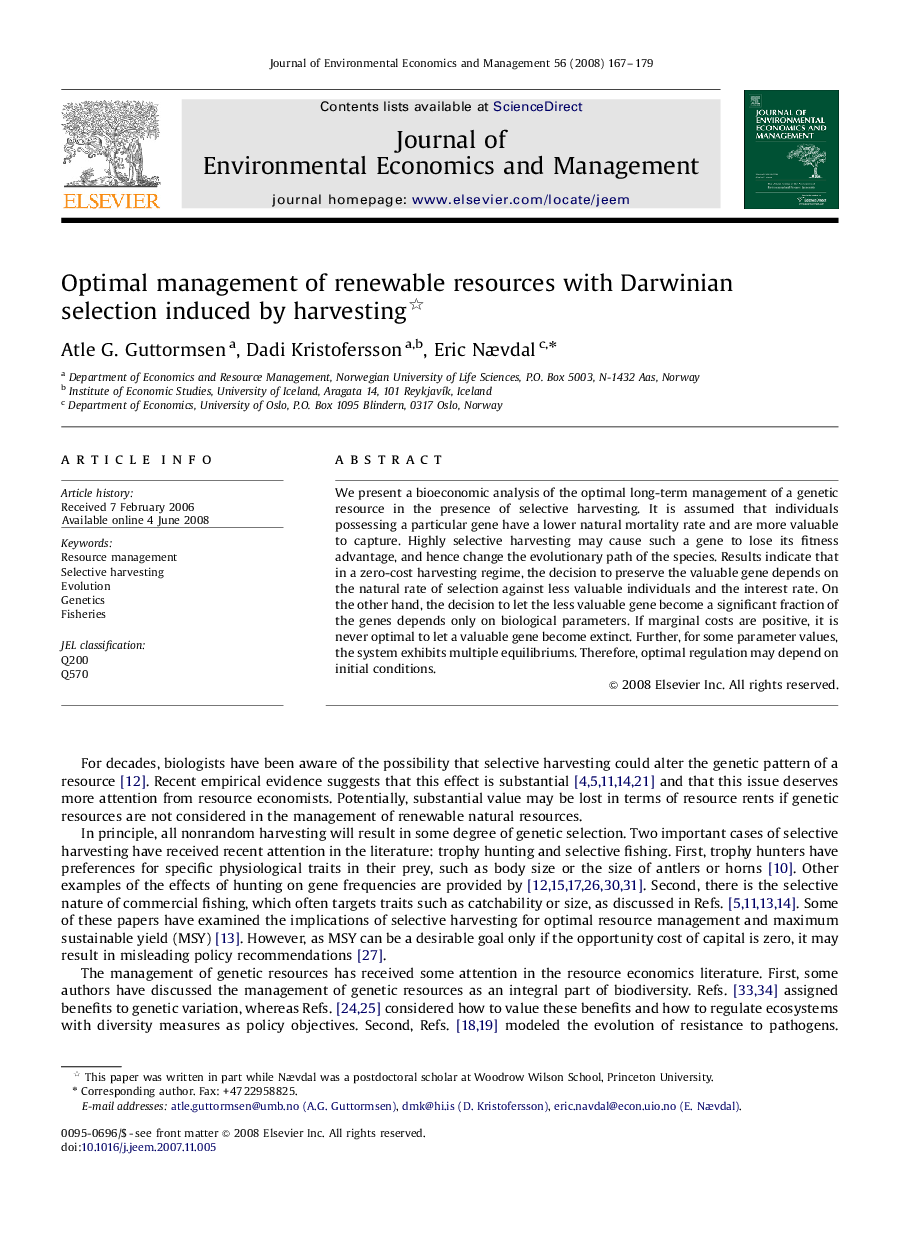| Article ID | Journal | Published Year | Pages | File Type |
|---|---|---|---|---|
| 958908 | Journal of Environmental Economics and Management | 2008 | 13 Pages |
We present a bioeconomic analysis of the optimal long-term management of a genetic resource in the presence of selective harvesting. It is assumed that individuals possessing a particular gene have a lower natural mortality rate and are more valuable to capture. Highly selective harvesting may cause such a gene to lose its fitness advantage, and hence change the evolutionary path of the species. Results indicate that in a zero-cost harvesting regime, the decision to preserve the valuable gene depends on the natural rate of selection against less valuable individuals and the interest rate. On the other hand, the decision to let the less valuable gene become a significant fraction of the genes depends only on biological parameters. If marginal costs are positive, it is never optimal to let a valuable gene become extinct. Further, for some parameter values, the system exhibits multiple equilibriums. Therefore, optimal regulation may depend on initial conditions.
